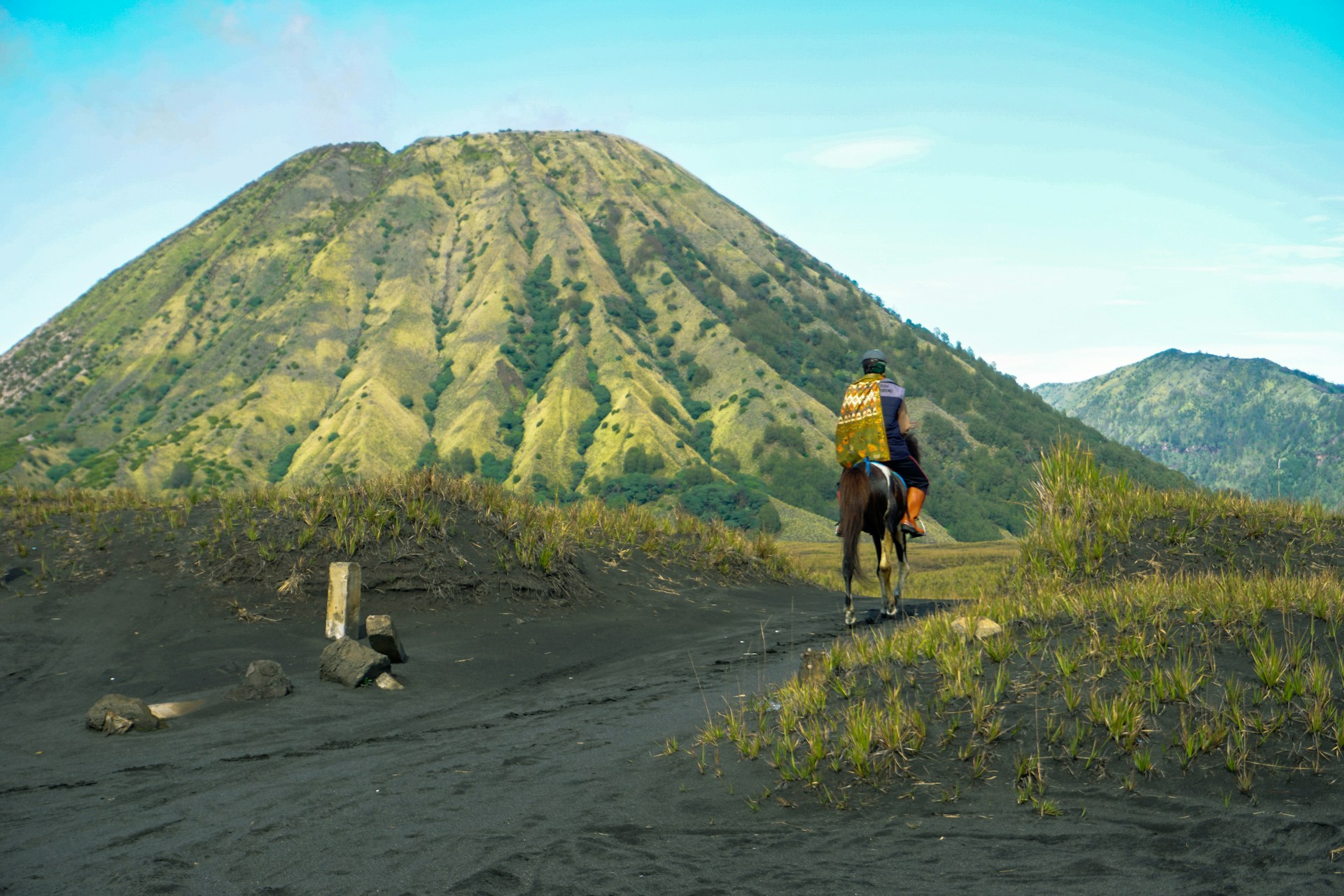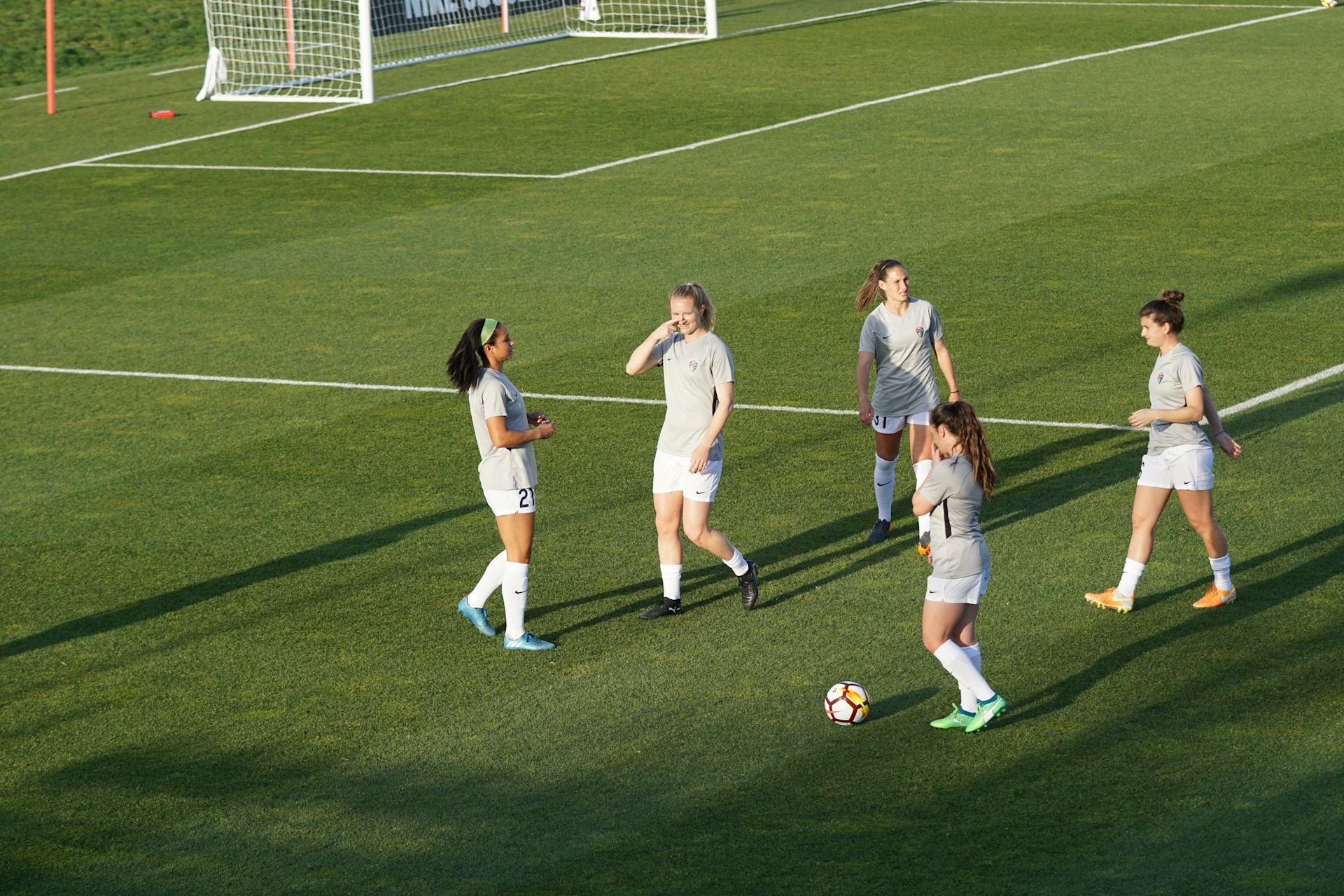Nutrition Knowledge, Breastfeeding and Infant Feeding Practice of Mothers in Cirebon Regency
Downloads
Background: Exclusive breastfeeding should be supported by early initiation of breastfeeding (EIBF), provision of colostrum and not providing pre-lacteal feeding.
Objectives: The study objective was to analyze nutritional knowledge and factors related to breastfeeding and feeding practices of lactating mothers.
Methods: A cross-sectional study was conducted in March–November 2020 in Sibubut, Kedungdalem, and Bayalangu Kidul Villages, Cirebon Regency. Study respondents were 44 lactating mothers with under six months infants. Mothers' nutritional knowledge of breastfeeding and breastfeeding/feeding practice were obtained using a validated questionnaire, while the food consumption data of mothers was obtained from two days of 24-hour food recall (weekday and weekend). Spearman's correlation test and Chi-Square analysis were used to analyze the correlation between variables, while the Mann-Whitney test was used to analyze the difference in nutritional knowledge and breastfeeding/infant feeding practice variables based on education level.
Results: Family characteristics (age, mother's education and occupation, household income, parity, family size, and Body Mass Index (BMI) were not correlated with breastfeeding/infant feeding practice (p=0.427; 0.136; 0.481; 0.056; 0.699; 0.241; 0.547, respectively). There was no significant correlation between nutritional knowledge and breastfeeding/infant feeding practice of mothers (p=0.728). No significant difference was found in the nutritional knowledge of breastfeeding (p=0.828) and breastfeeding/feeding practice of infants (p=0.572) between mothers with education > elementary school and < elementary school. More mothers with low education provided pre-lacteal food than mothers with higher education (p =0.046).
Conclusions: The breastfeeding/feeding practice of mothers are still poor regardless of education level. Nutrition education for breastfeeding mothers is required to encourage good breastfeeding/infant feeding practices.
Ministry of Health of Republic of Indonesia. Situasi Balita Pendek (Stunting) di Indonesia (Stunting Situation among Under Five Children in Indonesia). (2018). Available at: https://pusdatin.kemkes.go.id/download.php?file=download/pusdatin/buletin/Buletin-Stunting-2018.pdf.
World Health Organization. Levels and Trends in Child Malnutrition. (2019). Available at: https://www.who.int/nutgrowthdb/jme-2019-key-findings.pdf.
Ministry of Health of Republic of Indonesia. Laporan Akhir Penelitian Studi Status Gizi Balita Di Indonesia Tahun 2019. (2019). Available at: https://cegahstunting.id/en/download/2611/.
Beal, T., Tumilowicz, A., Sutrisna, A., Izwardy, D. & Neufeld, L. M. A Review of Child Stunting Determinants in Indonesia. Maternal & Child Nutrition 14, 1-10 (2018).
Ministry of Health of Republic of Indonesia. InfoDATIN: Menyusui sebagai Dasar Kehidupan (Data and Information Centre: Breastfeeding as the Foundation of Life). (2018). Available at: https://www.kemkes.go.id/article/view/19011500003/menyusui-sebagai-dasar-kehidupan.html.
World Health Organization. WHA Global Nutrition Targets 2025: Breastfeeding Policy Brief. (2014). Available at: https://apps.who.int/iris/bitstream/handle/10665/149022/WHO_NMH_NHD_14.7_eng.pdf?sequence=1&isAllowed=y.
Sinshaw, Y., Ketema, K. & Tesfa, M. Exclusive Breastfeeding Practice and Associated Factors Among Mothers in Debre Markos Town and Gozamen District, East Gojjam Zone, North West Ethiopia. Journal of Food and Nutrition Science 3, 174–179 (2015).
Oddy, W. H. Breastfeeding in The First Hour of Life Protects Against Neonatal Mortality. Journal de Pediatria 89, 109–111 (2013).
Liben, M. L., Abuhay, T. & Haile, Y. The Role of Colostrum Feeding on The Nutritional Status of Preschool Children in Afombo District, Northeast Ethiopia: Descriptive Cross Sectional Study. Eur J Clin Biomed Sci 2, 87–91 (2016).
Monteiro, J. C. S., Dias, F. A., Stefanello, J., Reis, M. C. G., Nakano, A. M. S. & Gomes-Sponholz, F. A. Breastfeeding Among Brazilian Adolescents: Practice and Needs. Midwifery 30, 359–363 (2014).
Silva, C. S., Lima, M. C., Sequeira-de-Andrade, L. A. S., Oliveira, J. S., Monteiro, J. S., Lima, N. M. S., Santos, R. M. A. B. & Lira, P. I. C. Association Between Postpartum Depression and The Practice of Exclusive Breastfeeding in The First Three Months of Life. Journal de Pediatria 93, 356–364 (2017).
Chen, C., Cheng, G. & Pan, J. Socioeconomic Status and Breastfeeding in China: An Analysis of Data from a Longitudinal Nationwide Household Survey. BMC Pediatrics 19, 1–8 (2019).
BPS (Badan Pusat Statistik). Kabupaten Cirebon Dalam Angka 2020. (Penerbit BPS Kabupaten Cirebon 2020).
Ministry of Health of Republic of Indonesia. Minister for Health Regulation No. 41 Year 2014 about Balance Nutrition Guidelines. (2014). Available at: https://peraturan.bpk.go.id/Home/Download/109856/Permenkes%20Nomor%2041%20Tahun%202014.pdf.
Khomsan, A. Teknik Pengukuran Pengetahuan Gizi (Nutritional Knowledge Measurement Method). (Penerbit Institut Pertanian Bogor, 2000).
Ministry of Health of Republic of Indonesia. Situasi dan Analisis ASI Eksklusif (Situation and Analysis of Exclusive Breastfeeding). (2014). Available at: https://pusdatin.kemkes.go.id/download.php?file=download/pusdatin/infodatin/infodatin-asi.pdf.
BKKBN (Badan Kependudukan dan Keluarga Berencana Nasional). Gerakan Keluarga Berencana dan Keluarga Sejahtera. (Penerbit BKKBN 1997).
Astuti, I. Determinan Pemberian ASI Eksklusif pada Ibu Menyusui (Determinants of Exclusive Breastfeeding in Lactating Mothers). Jurnal Health Quality 4, 1–76 (2013).
Untari, J. Hubungan Antara Karakteristik Ibu dengan Pemberian ASI Eksklusif di Wilayah Kerja Puskesmas Minggir Kabupaten Sleman (Correlation between Mothers' Characteristics and Exclusive Breastfeeding in Working Area of Minggir Community Health Centre, Sleman Regency. Jurnal Formil (Forum Ilmiah) KesMas Respati 2, 17–23 (2017).
Arintasari, F. Faktor-Faktor yang Berhubungan dengan Pemberian ASI Eksklusif di Puskesmas Tegalrejo Yogyakarta Tahun 2015 (Factors Related to Exclusive Breastfeeding in Tegalrejo Community Health Centre, Yogyakarta Year 2015). Jurnal Medika Respati 11, 42–50 (2016).
Hastuti, B. W., Machfudz, S. & Febriani, T. B. Hubungan Pengalaman Menyusui dan Tingkat Pendidikan Ibu dengan Pemberian ASI Eksklusif di Kelurahan Barukan, Kecamatan Manisrenggo, Kabupaten Klaten (Correlation of Breastfeeding Experience and Mothers' Education Level with Exclusive Breastfeeding in Barukan Village, Manisrenggo Subdistrict, Klaten Regency). Jurnal Kedokteran dan Kesehatan Indonesia 6, 179–187 (2015).
Lestari, D., Zuraida, R. & Larasati, T. A. Hubungan Tingkat Pengetahuan Ibu Tentang Air Susu Ibu dan Pekerjaan Ibu dengan Pemberian ASI Eksklusif di Kelurahan Fajar Bulan (Correlation of Mothers' Nutritional Knowledge on Breastmilk and Mothers' Occupation with Exclusive Breastfeeding in Fajar Bulan Village). Medical Journal of Lampung University 2, 88–99 (2013).
Ramli, R. Hubungan Pengetahuan dan Status Pekerjaan Ibu dengan Pemberian ASI Eksklusif di Kelurahan Sidotopo (Correlation of Mothers' Knowledge and Working Status with Exclusive Breastfeeding in Sidotopo Village). Jurnal Promkes: The Indonesian Journal of Health Promotion and Health Education 8, 36–46 (2020).
Wulansari, S. & Pramono, M. S. Hubungan Kondisi Sosial Ekonomi Keluarga dengan Pemberian ASI Eksklusif di Wilayah Kerja Puskesmas Tanah Kali Kedinding Surabaya (Correlation of Family Socioeconomic Condition with Exclusive Breastfeeding in Working Area of Tanah Kali Kedinding Community Health Centre, Surabaya). Buletin Penelitian Sistem Kesehatan 17, 9–15 (2014).
Sulistiyowati, T. & Siswantara, P. Perilaku Ibu Bekerja dalam Memberikan ASI Eksklusif di Kelurahan Japanan Wilayah Kerja Puskesmas Kemlagi Mojokerto (Working Mothers Behavior on Exclusive Breastfeeding in Japanan Village, Working Area of Kemlagi Community Health Centre, Mojokerto). Jurnal Promkes 2, 89–100 (2014).
Maulida, H., Afifah, E. & Sari, D. P. Tingkat Ekonomi dan Motivasi Ibu dalam Pemberian ASI Eksklusif pada Bayi Usia 0-6 Bulan di Bidan Praktek Swasta (BPS) Ummi Latifah Agromulyo, Sedayu Yogyakarta (Economic Level and Motivation of Mothers on Exclusive Breastfeeding to Infants Aged 0-6 Months in Private Midwife Practice Ummi Latifah Agromulyo, Sedayu, Yogyakarta). Jurnal Ners dan Kebidanan Indonesia 3, 116–122 (2015).
Mabud, N. H., Mandang, J. & Mamuaya, T. Hubungan Pengetahuan, Pendidikan, Paritas dengan Pemberian ASI Eksklusif di Puskesmas Bahu Kecamatan Malalayang Kota Manado (Correlation of Knowledge, Education, and Parity with Exclusive Breastfeeding in Bahu Community Health Centre, Malalayang Subdistrict, Manado City). Jurnal Ilmiah Bidan 2, 51–56 (2014).
Oktalina, O., Muniroh, L. & Adiningsih, S. Hubungan Dukungan Suami dan Dukungan Keluarga dengan Pemberian ASI Eksklusif pada Ibu Anggota Kelompok Pendukung ASI (KP-ASI) (Correlation of Husband and Family Supports with Exclusive Breastfeeding of Mothers Member of Breastfeeding Support Group). Media Gizi Indonesia 10, 64–70 (2015).
Ratnasari, D., Paramashanti, B. A., Hadi, H., Yugistyowati, A., Astiti, D. & Nurhayati, E. Family Support and Exclusive Breastfeeding among Yogyakarta Mothers in Employment. Asia Pacific Journal of Clinical Nutrition 26, S31–S35 (2017).
Ramadani, M. Dukungan Keluarga Sebagai Faktor Dominan Keberhasilan Menyusui Eksklusif (Family Support as Dominant Factor for Successful Exclusive Breastfeeding). Jurnal Media Kesehatan Masyarakat Indonesia 13, 34–41 (2017).
Maharani, H., Pangestuti, D. R. & Pradigo, S. F. Faktor-Faktor yang Berhubungan dengan Status Gizi Ibu Menyusui di Wilayah Kerja Puskesmas Kedungmundu Kota Semarang (Factors Related to Nutritional Status of Lactating Mothers in Working Area of Kedungmundu Community Health Centre, Semarang City). Jurnal Kesehatan Masyarakat 4, 187–196 (2016).
Manggabarani, S, Hadi, A. J., Said, I. & Bunga, S. Hubungan Pengetahuan, Status Gizi, Pola Makan, Pantangan Makanan dengan Kelancaran Produksi ASI pada Ibu Menyusui (Correlation of Knowledge, Nutritional Status, Dietary Pattern, Dietary Restrictions with Breastmilk Flow in Lactating Mothers). Jurnal Dunia Gizi 1, 1–9 (2018).
WNPG (National Workshop on Food and Nutrition). Pemantapan Ketahanan Pangan, Perbaikan Gizi Berbasis Kemandirian dan Kearifan Lokal (Establishment of Food Security, Nutrition Improvement based on Local Sovereignty and Wisdom). (Penerbit Lembaga Ilmu, 2012).
Haileslassie, K., Mulugeta, A. & Girma, M. Feeding Practices, Nutritional Status and Associated Factors of Lacting Women in Samre Woreda, South Eastern Zone of Tigray, Ethiopia. Nutrition Journal 12, 1–11 (2013).
Radharisnawati, N. K., Kundre, R. & Pondaag, L. Hubungan Pemenuhan Kebutuhan Gizi Ibu dengan Kelancaran Air Susu Ibu (ASI) pada Ibu Menyusui di Puskesmas Bahu Kota Manado (Correlation of Mothers' Nutrition Requirement Fulfillment with Breastmilk Flow of Lactating Mothers in Bahu Community Health Centre, Manado City). E-Journal Keperawatan 5, 1–7 (2017).
Sundaram, M. E., Labrique, A. B., Mehra, S., Ali, H., Shamim, A. A., Klemm, R. D. W., West Jr, K. P. & Christian, P. Early Neonatal Feeding is Common and Associated with Subsequent Breastfeeding Behavior in Rural Bangladesh. The Journal of Nutrition Community and International Nutrition 143, 1161–1167 (2013).
Triatmaja, N. T. Faktor-faktor yang Berhubungan dengan Pemberian Makanan Prelakteal: Studi Cross-Sectional di Kota Bogor Tahun 2015 (Factors Related to Prelacteal Feeding: A Cross-Sectional Study in Bogor City Year 2015). Jurnal Wiyata 3, 214–222 (2016).
Al-Sahab, B. A., Lanes, A., Feldman, M. & Tamim, H. Prevalence and Predictors of 6-Month Exclusive Breastfeeding Among Canadian Women: A National Survey. BMC Pediatrics 10, 1–9 (2010).
Woldeamanuel, B. T. Trends and Factors Associated to Early Initiation of Breastfeeding, Exclusive Breastfeeding and Duration of Breastfeeding in Ethiopia: Evidence from The Ethiopia Demographic and Health Survey 2016. International Breastfeeding Journal 15, 1–13 (2020).
Dashti, M., Scott, J. A., Edwards, C. A. & Al-Sughayer, M. Determinants of Breastfeeding Initiation Among Mothers in Kuwait. International Breastfeeding Journal 5, 1–9 (2010).
Raharjo, B. B. Profil Ibu dan Peran Bidan dalam Praktik Inisiasi Menyusu Dini dan ASI Eksklusif (Mothers' Profile and Role of Midwives in Early Initiation of Breastfeeding and Exclusive Breastfeeding Practices). Jurnal Kesehatan Masyarakat 10, 53–63 (2014).
Priyatama, P. V. Immunological Aspect of Colostrum as a Preventative Medication. Journal of Innovation in Pharmaceuticals and Biological Sciences 2, 252–260 (2015).
Maita, L. & Shalihah, N. Faktor-faktor yang Menyebabkan Pemberian Kolostrum pada Ibu Nifas di Ruang Camar I RSUD Arifin Achmad Provinsi Riau (Factors Causing Colostrum Feeding in Postpartum Mothers I Camar I Room Arifin Achmad Regional Public Hospital, Riau Province). Jurnal Maternity dan Neonatal 1, 254–261 (2015).
Ayunsari, D., Suyatno & Rahayuning, D. P. Faktor-faktor Determinan Pemberian Kolostrum dan ASI Eksklusif pada Baduta (0-24 Bulan) di Indonesia Berdasarkan Data Riskesdas Tahun 2010 (Determinant Factors of Colostrum Feeding and Exclusive Breastfeeding on Under Two Children (0-24 Months) in Indonesia based on Basic Health Research Data Year 2010). Jurnal Kesehatan Masyarakat 2, 1–12 (2013).
Fahriani, R., Rohsiswatmo, R. & Hendarto, A. Faktor yang Memengaruhi Pemberian ASI Eksklusif pada Bayi Cukup Bulan yang Dilakukan Inisiasi Menyusu Dini (IMD) (Factors Influencing Exclusive Breasfeeding on Full Term Infants Having Early Initiation of Breastfeeding (EIBF)). Sari Pediatri 15, 394–402 (2014).
Lindawati, R. Hubungan Pengetahuan, Pendidikan dan Dukungan Keluarga dengan Pemberian ASI Eksklusif (Correlation of Knowledge, Education, and Family Support with Exclusive Breastfeeding). Faletehan Health Journal 6, 30–36 (2019).
Alimuddin, N. M. N., Kapantow, N. H. & Kawengian, S. E. S. Hubungan antara Pengetahuan dan SIkap Ibu dengan Pemberian ASI Eksklusif pada Bayi Berusia 6-12 Bulan di Wilayah Kerja Puskesmas Bailang Kota Manado (Correlation Between Knowledge and Mother's Attitude with Exclusive Breastfeeding for Infants aged 6-12 Months in the Work Area of Bailang Health Center Manado City). KESMAS 6, 1–7 (2017).
Husnayain, Z. S., Nurida, A., Marlina, U. & Prahasanti, K. The Relationship Between The Level of Mother's Breastfeeding Knowledge With Exclusive Breastfeeding Practice in The Center of Public Health Kenjeran. MAGNA MEDIKA 8, 1–7 (2021).
Diana, R. & Adi, A. C. Mother's Knowledge, Attitude, and Practice of Exclusive Breastfeeding. Indian Journal of Public Health Research & Development 10, 887–892 (2019).
Pitaloka, D. A., Abrory, R. & Pramita, A. D. Hubungan antara Pengetahuan dan Pendidikan Ibu dengan Pemberian ASI Eksklusif di Desa Kedungrejo Kecamatan Waru Kabupaten Sidoarjo (Correlation between Knowledge and Education of Mothers with Exclusive Breastfeeding in Kedungrejo Village, Waru Subdistrict, Sidoarjo Regency). Amerta Nutrition 2, 265–270 (2018).
Banu, B. & Khanom, K. Effects of Education Level of Father and Mother on Perceptions of Breastfeeding. Journal of Enam Medical College 2, 67–73 (2012).
Makoka, D. & Masibo, P. K. Is There a Threshold Level of Maternal Education Sufficient to Reduce Child Undernutrition? Evidence from Malawi, Tanzania and Zimbabwe. BMC Pediatrics 15, 1–10 (2015).
Putri, L. G. I. K., Astuti, I. W. & Putu, I. G. N. Hubungan Tingkat Pengetahuan Ibu tentang Nutrisi Saat Menyusui dengan Status Gizi Bayi Umur 1”6 Bulan (Correlation of Mother's Knowledge Level of Nutrition While Breastfeeding with Nutritional Status of Infants Age 1-6 Months). Community of Publishing in Nursing (COPING) 6, 1”8 (2018).
Yusrina, A. & Devy, S. R. Influencing Factors of The Intentions Mothers Breastfeeding Exclusively in Kelurahan Magersari, Sidoarjo. Jurnal Promkes 4, 11”21 (2016).
Copyright (c) 2022 Amerta Nutrition

This work is licensed under a Creative Commons Attribution-ShareAlike 4.0 International License.
AMERTA NUTR by Unair is licensed under a Creative Commons Attribution-ShareAlike 4.0 International License.
1. The journal allows the author to hold the copyright of the article without restrictions.
2. The journal allows the author(s) to retain publishing rights without restrictions
3. The legal formal aspect of journal publication accessibility refers to Creative Commons Attribution Share-Alike (CC BY-SA).
4. The Creative Commons Attribution Share-Alike (CC BY-SA) license allows re-distribution and re-use of a licensed work on the conditions that the creator is appropriately credited and that any derivative work is made available under "the same, similar or a compatible license”. Other than the conditions mentioned above, the editorial board is not responsible for copyright violation.

















































